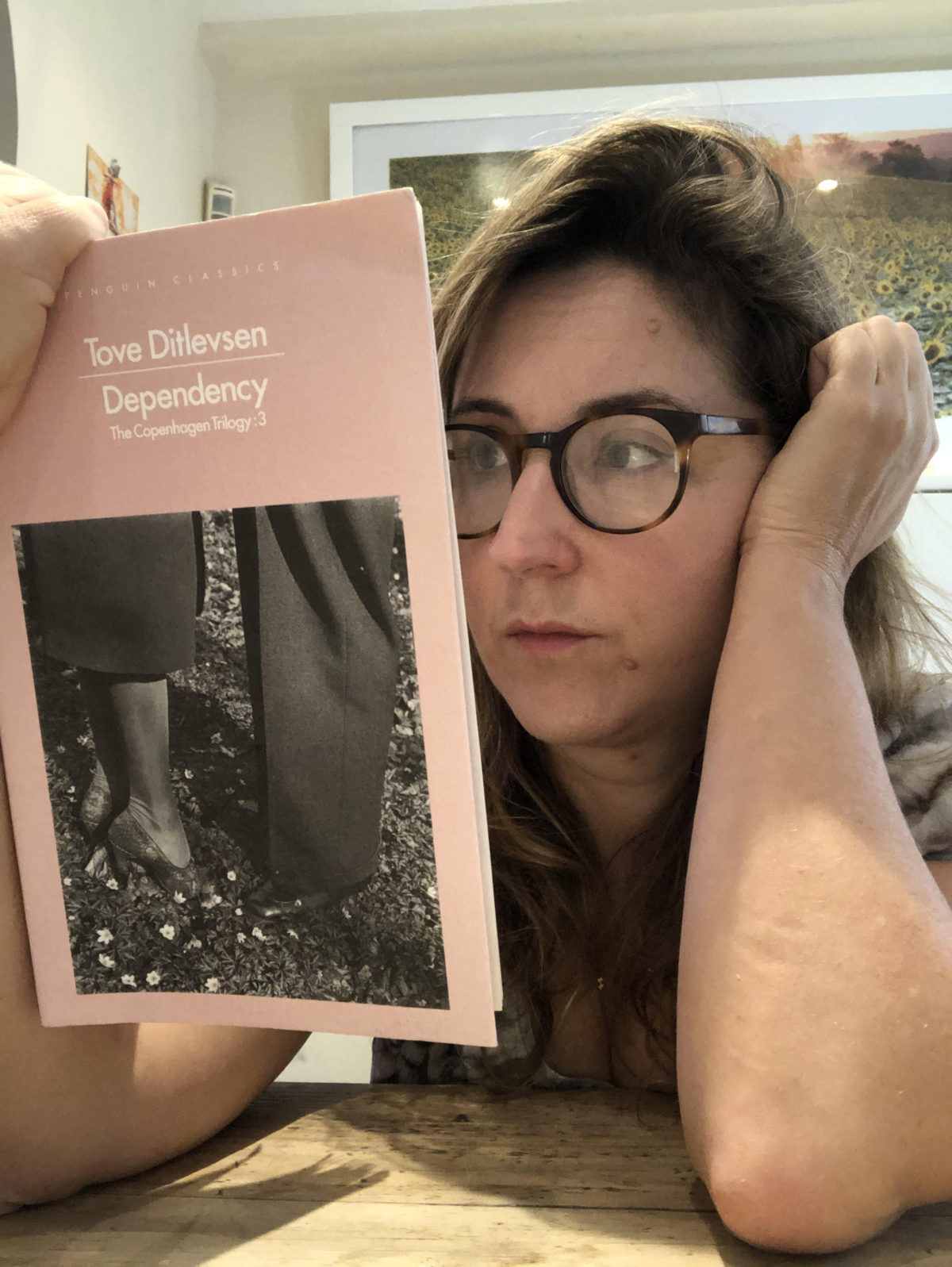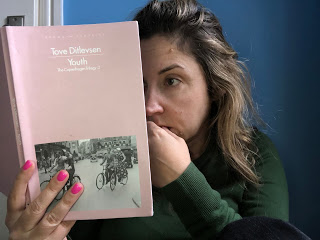I wondered when I read the first book in this autobiographical trilogy why the author was so cheerful about her childhood, which overall looked pretty ropey what with the diphtheria and the rickets and everything. Having read this third book, about her adulthood, I now understand. Her childhood does look pretty cushy in comparison.
She first marries an old guy largely because he published her first poetry and she wants to be financially looked after by him. To modern eyes, it’s kind of amazing how straightforward she is about this; but what I got from reading it is that in the 1940s you were more or less expected to be in a transactional relationship, where you provide domestic work and sex and he provides money. I know I say this on this blog about once a month but THANK GOD IF I HAD TO BE BORN FEMALE IT HAPPENED NOW AND NOT EARLIER.
Anyway, this guy does not get what he bargained for, because what Ditlevsen is interested in is not domestic work but writing. This is what she spends her days on
I’m just writing; maybe it will be good; maybe not. The most important thing is that I feel happy when I’m writing, just as I always have. I feel happy and forget everything around me. .
Even this is not enough though. Here she is standing at the window watching young lovers:
I am only twenty years old and the days descend on me un-noticeably like dust, each one just like the rest
She leaves the old guy for WHOLE NEXT PARA IS FULL OF SPOILERS BECAUSE A LOT GOES ON a younger guy, and they have a baby. She then has a hair-raising illegal abortion, and then gets pregnant again from a one-night stand with this one doctor. She insists he gives her an abortion, and this is where her problems begin, because he uses Demerol during the procedure, and she is immediately addicted. She leaves her husband to marry this doctor, even though she does not like him and indeed thinks he has mental health issues, so that she can continue to get Demerol. He also gives her methadone, choral, etc. He also isolates her so no one knows what is going on. She is close to death when she saves herself by using a moment of lucidity to phone a friend. She ends up in rehab and her husband in an asylum.
She recovers and tried to get back with her second husband. He rejects her.
I cried when I read his letter. No man had ever turned me down before.
Like, FYI, Tove, don’t tell people things like that. No one wants to hear how popular you are.
She fall in love (at first sight!) with a guy who becomes her fourth husband, and he moves her to the countryside, so that it is harder for her to acquire drugs.
What’s curious about this novel is that despite so much going on – four husbands, two abortions, three children (one adopted, I didn’t even tell you about that), many best-selling books – the appeal of this novel is not at all in its story. In fact I never read such really salacious material presented so un-salacioiusly. You feel weirdly connected to the real life of someone in Copehagen decades ago. Here she is making dinner, about to leave some husband:
While I’m standing in the kitchen turning on the potatoes, my heart starts hammering and the white tile wall behind the stovetop flickers before my eyes, as if the tiles were starting to fall off.
The strange fascination of this book is its total lack of sentimentality or excuses. I don’t think I would be capable of giving an account of my life so utterly without justifications or apologies. It’s really remarkable for its honesty and makes you feel like you maybe know her better than most people you actually do know.
At the end she seems in a better place, being away from the chemists and their jars of methadone, but I am sorry to say that I checked date of publication and date of death ,and the poor lady only had five years left. She killed herself in 1976, so while I have not checked Wikipedia I can suppose that indeed the addiction did not let go. I feel sad about it, as if she just died today, rather than decades before I was born.


